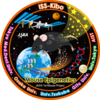This is an archive of information released in the past.
Disclaimer: It may contain broken links or outdated information. Some parts may not function in current web browsers.
*Visit https://humans-in-space.jaxa.jp/en/ for the latest information.

Experiment
- News
- Kibo Utilization Strategy
- Kibo Utilization Plan
- List of JAXA's Utilization Themes
- Experiment Facilities
- Space Environment Utilization
- Archive
Analysis of effect on reproductive ability of mice reared on International Space Station/Kibo

A team of researchers led by Professor Masahito Ikawa from the Research Institute for Microbial Diseases of Osaka University, in a joint research project with Professor Satoru Takahashi from the Department of Anatomy and Embryology, Faculty of Medicine, University of Tsukuba and researchers from JAXA, evaluated the reproductive organs and sperm fertilizing ability of male mice that were raised in the Japanese Experiment Module "Kibo" of the International Space Station in 2016. In this JAXA's first mouse habitat mission (MHU-1), all mice were successfully returned to Earth in living condition after long-term (35 days) rearing on ISS for the first time in the world. The team revealed that these mice had the normal sperm fertilizing ability and that their next-generation mice also had the normal ability to grow and the normal sperm fertilizing ability without any influence of their parent generation. These are the world's first findings and the results will constitute the basic knowledge for humankind to expand it fields of activities toward space.
The results of this joint research were published on Scientific Reports on September 24, 2019.
Please refer to the following websites for further information:
Report's link
Title: "Male mice, caged in the International Space Station for 35 days, sire healthy offspring"
Related topics: Matsumura T#, Noda T#, Muratani M, Okada R, Yamane M, Isotani A, Kudo T, Takahashi S and Ikawa M (#: Coauthor)
Related topics
JAXA Mouse habitat mission
- Mouse Habitat Unit (MHU)
- Development of new experimental platform 'MARS' - Multiple Artificial-gravity Research System - to elucidate the impacts of micro/partial gravity on mice (September 26, 2017)
- World's first survival return of all mice reared for a long time in ISS Kibo and the birth of next-generation mice (January 13, 2017)
Related experiment in Kibo
*All times are Japan Standard Time (JST)
| Copyright 2007 Japan Aerospace Exploration Agency | Site Policy |